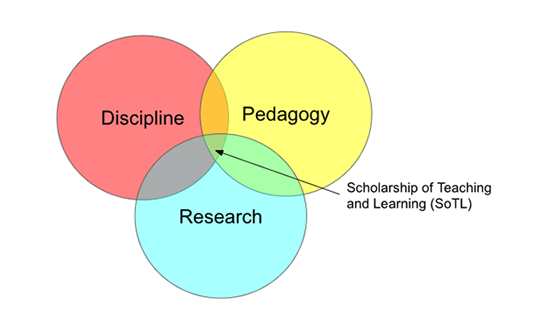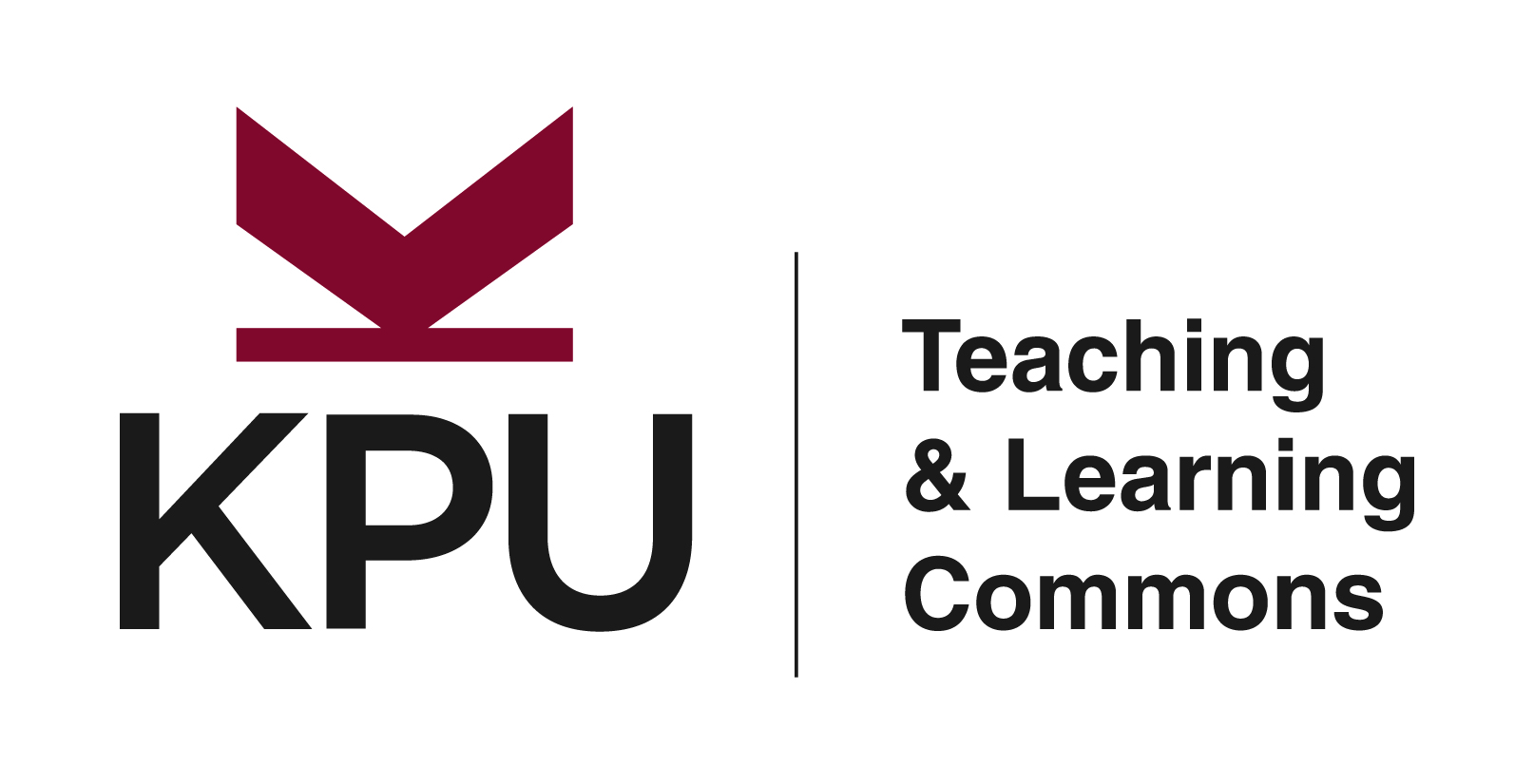Defining the Scholarship of Teaching & Learning
Defining the Scholarship of Teaching & Learning
As educators, we are committed to professional excellence, improving the craft of teaching, and improving the learning experience. One powerful way of doing this is through the convergence of teaching, learning, and research into something called the Scholarship of Teaching of Learning (SoTL). SoTL involves the curious, systematic, and rigorous inquiry into teaching practices and the sharing of those findings all with the goal of improving student learning. The community of scholars that engage in SoTL come from many disciplines and all parts of the globe. A fuller appreciation of the diversity of ideas about what SoTL is can be triangulated from the different definitions offered by thinkers (e.g., Simmons & Marquis, 2017):

Definitions of SoTL
“The systematic study of teaching and learning, using established or validated criteria of scholarship, to understand how teaching (beliefs, behaviours, attitudes, and values) can maximize learning, and/or develop a more accurate understanding of learning, resulting in products that are publicly shared for critique and use by an appropriate community” (Potter & Kustra, 2011, p. 2).
“Systematic study of teaching and/or learning and the public sharing and review of such work through presentations, performance, or publications”
(McKinney, 2006, p. 39).
“The scholarship of teaching is three related activities: engagement with the existing knowledge on teaching and learning, self-reflection on teaching and learning in one’s discipline, and public sharing of ideas about teaching and learning within the discipline” (Martin, Benjamin, Prosser, and Trigwell, 1999).
“Problem posing about an issue of teaching or learning, study of the problem through methods appropriate to the disciplinary epistemologies, applications of results to practice, communication of results, self-reflection, and peer review” (Cambridge, 2001, p. 8).
“The scholarship of teaching and learning encompasses a broad set of practices that engage teachers in looking closely and critically at student learning in order to improve their own courses and programs, and to share insights with other educators who can evaluate and build on their efforts”
(Hutchings, Huber, and Ciccone, 2011, p. xix).
